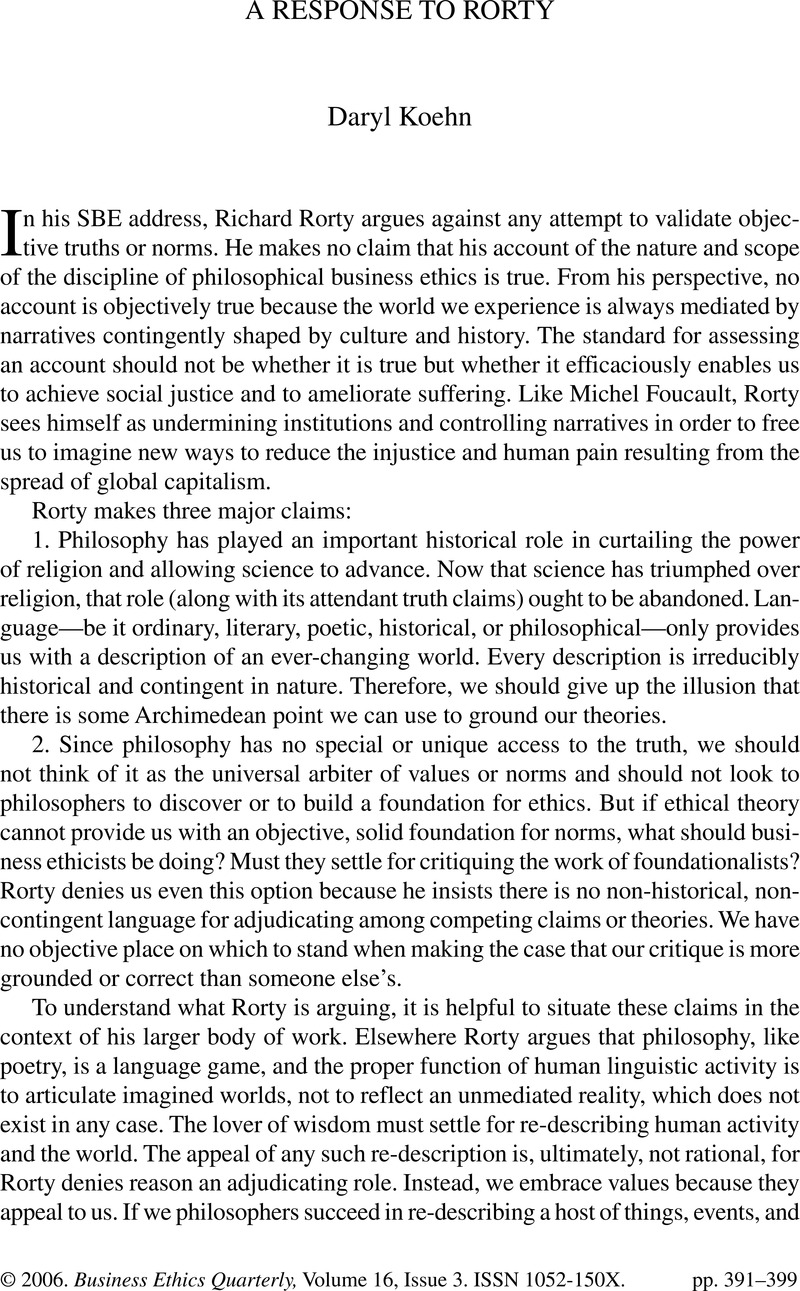
1. Richard Rorty, quoted in Stephen Best and Douglas Kellner, “Richard Rorty and Postmodern Theory,” at www.gseis.ucla.edu/faculty/kellner/essays/richardrortypostmoderntheory.pdf.
2. Ibid.
3. Joshua Knobe, “A Talent for Bricolage: An Interview with Richard Rorty,” The Dualist 2 (1995): 56–71.
4. Best and Kellner, “Rorty and Postmodern Theory.”
5. It might be objected that, while reason is essential to us in some sense, reason plays no role in effecting the paradigm shift. However, Rorty himself insists that the shift occurs because a new way of looking at things makes global or holistic sense. It would seem to be reason, not the emotions or feelings, that requires us to come up with a new picture “hangs together” as a whole.
6. I am indebted to an anonymous reviewer for the example of the Sullivan principles.
7. Leon Sullivan, quoted in Chris Herlinger, “Leon Sullivan Dies,” Christianity Today (April 30, 2001).
8. Stephen Jay Gould, “A Quahog Is a Quahog,” in The Panda’s Thumb (New York: W. W. Norton & Company, 1980), 204–13.
9. Ibid., 207–08.
10. Ibid., 208–13.
11. Ibid., 213.
12. Richard McKeon, “Being, Existence, and That Which Is,” Review of Metaphysics 13 (June 1960): 537–54.
13. Charles Sanders Peirce, Collected Papers of Charles Sanders Peirce, vols. 1 and 2 (Cambridge, Mass.: Harvard University Press, 1960), passim.
14. Rorty does recognize one fact, “the fact that our sense of possibilities open for human beings has changed as history has rolled along, and will go right on changing in unpredictable ways.” But this “fact” is simply another way of stating his theory of subjective pragmatism, and it is this theory that, I contend, leads him to neglect the reality of facts given in and by personal experiences.
15. John Cornell, Commencement Address for St. John’s Graduate Institute, Santa Fe, New Mexico, August 2005.